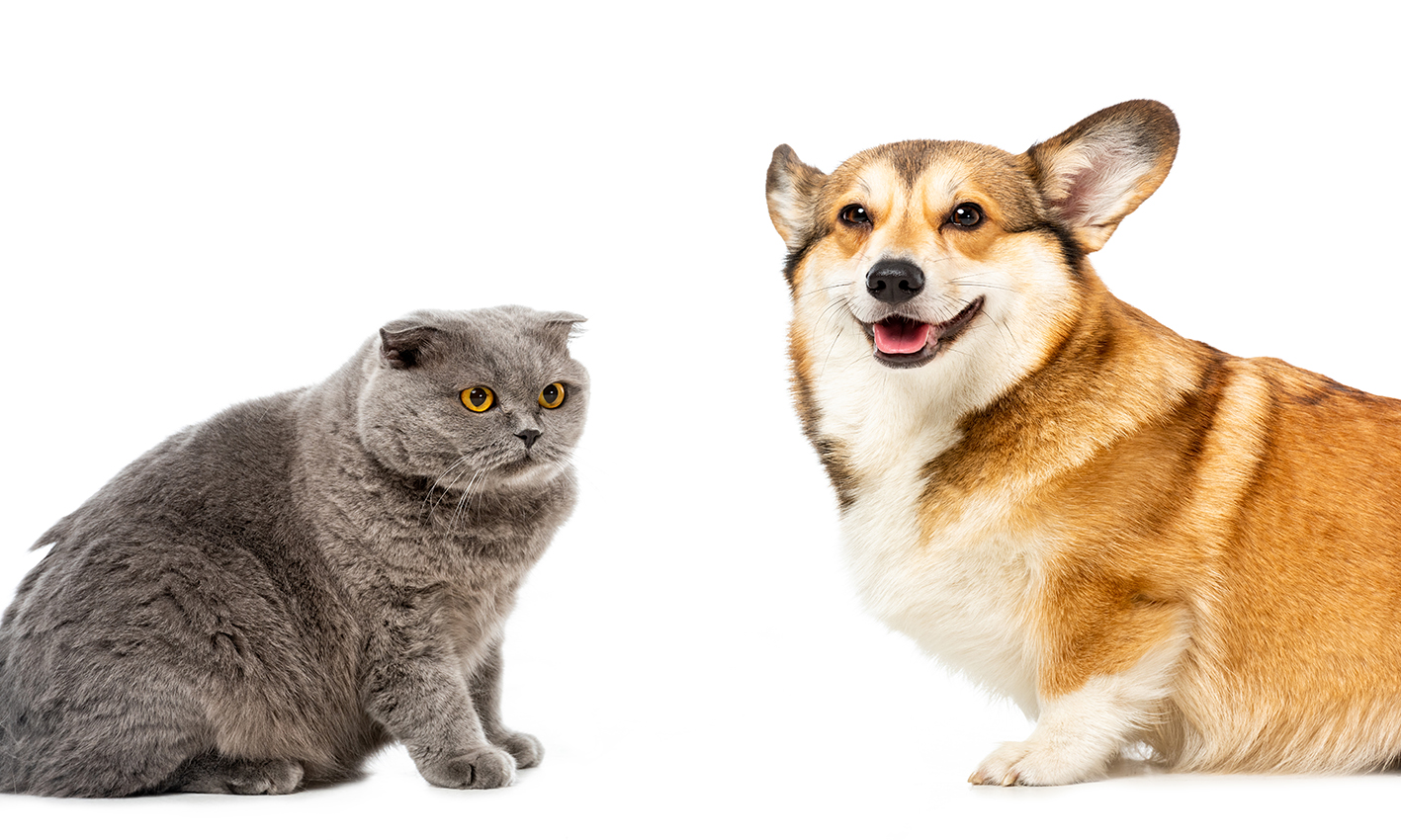Battle of the Bulge: Pet Obesity

Pet obesity is mainly caused by eating too much and not exercising enough. Overweight and obese pets face many of the same serious health risks as overweight humans. Heart disease, high blood pressure, joint pain, osteoarthritis, diabetes, and certain cancers are some of the health risks.
In a 2022 U.S. survey, 61% of cats and 59% of dogs were estimated to be overweight or obese.
Obesity Prevention and Tips
Pet obesity is preventable. Below are some effective strategies for preventing your pets from becoming overweight or obese.
Feed A Nutritious and Healthy Diet
All pets need a balanced, nutritious diet. If weight loss is the goal, reducing the amount of their regular food could lead to nutrient deficiencies. The recommended feeding amount on the label may not be ideal for your pet. Your veterinarian can guide you in choosing the right food and portions based on your pet’s unique needs.
Limit Treats
Treats are a significant contributor to pet obesity, and limiting them can help prevent weight gain. They should only be 10% of your pet’s daily calorie intake.
No More Free Grazing
Avoid leaving food out all day, as pets tend to graze, leading to excessive calorie intake. Just like humans, portion control is very important. Create a scheduled feeding time. Scheduled feeding is a healthier way to feed your pet. This allows you to control the amount of food and monitor their appetite.
Promote Regular Exercise
Exercise is an essential component in combating obesity in pets. Pets should have plenty of opportunities for physical activity each day. Walks, fetch or Frisbee, feather or laser pointer chase are great ways to get your pet to exercise. For high energy pets, activities like obstacle courses, agility training, and obedience classes are excellent ways for pets to burn calories during the winter months.
Talk To Your Veterinarian
Obesity in pets is preventable and we are here to help. We will work with you to establish a healthy weight goal, address any underlying medical issues, and come up with a plan to get your pet back to his or her ideal weight. Be sure to bring your pet in for all regularly scheduled wellness visits to give your veterinarian the chance to continue to evaluate and help you maintain your pet’s weight and good health.
Please don’t hesitate to contact us with any questions or concerns regarding your pet’s weight status.



